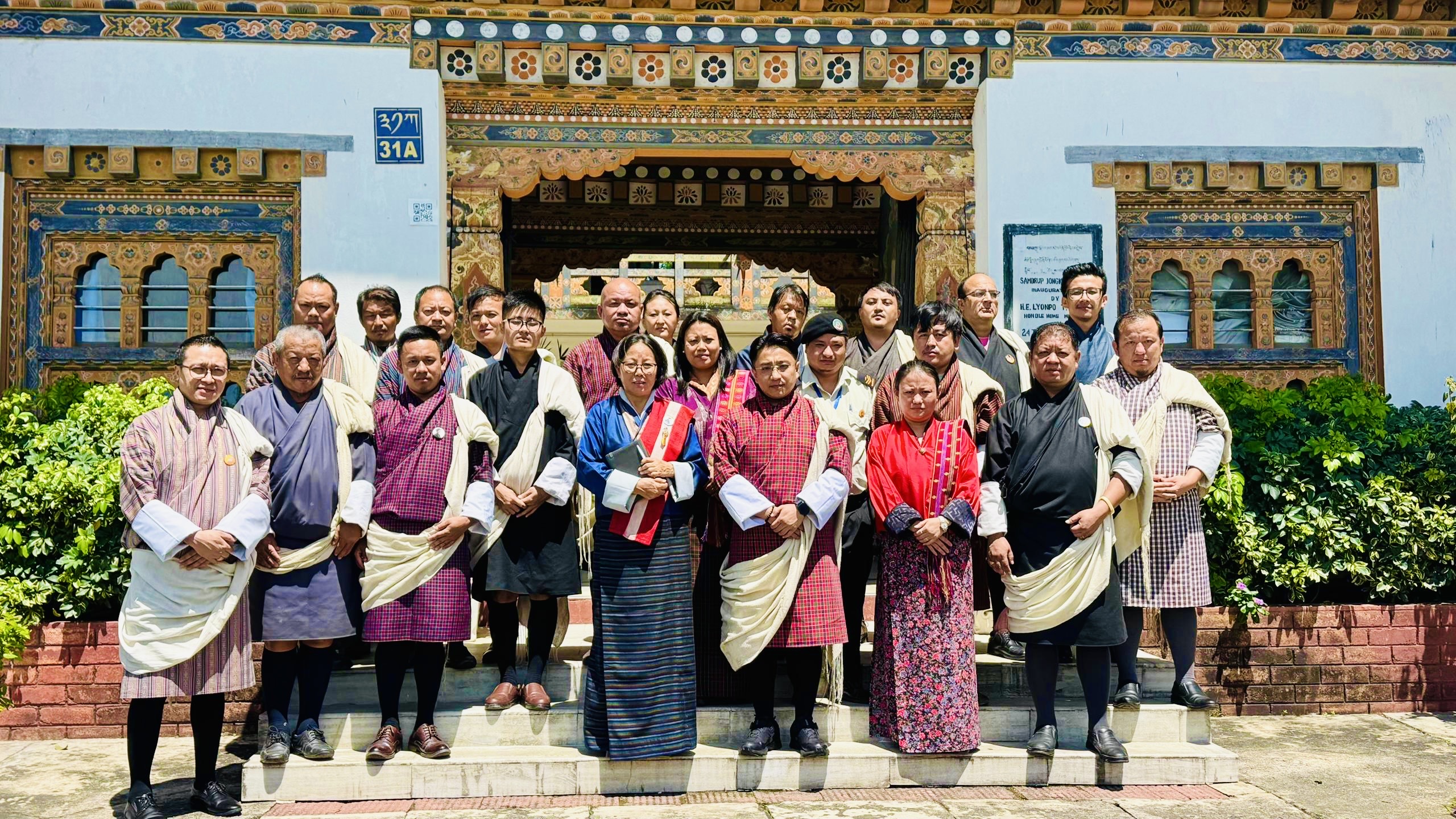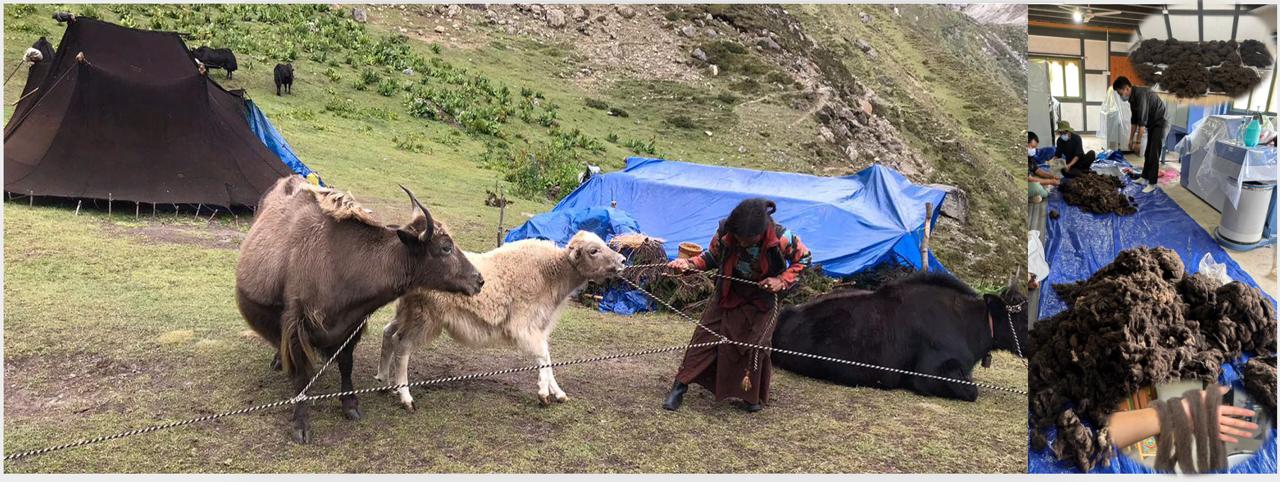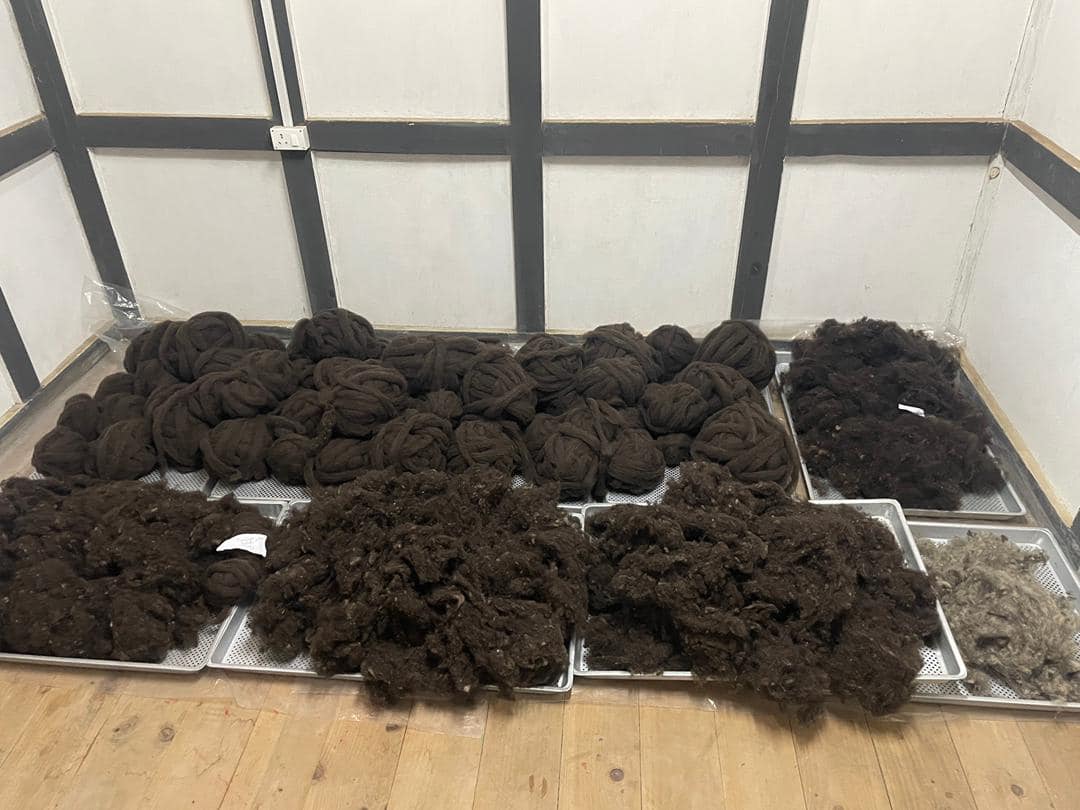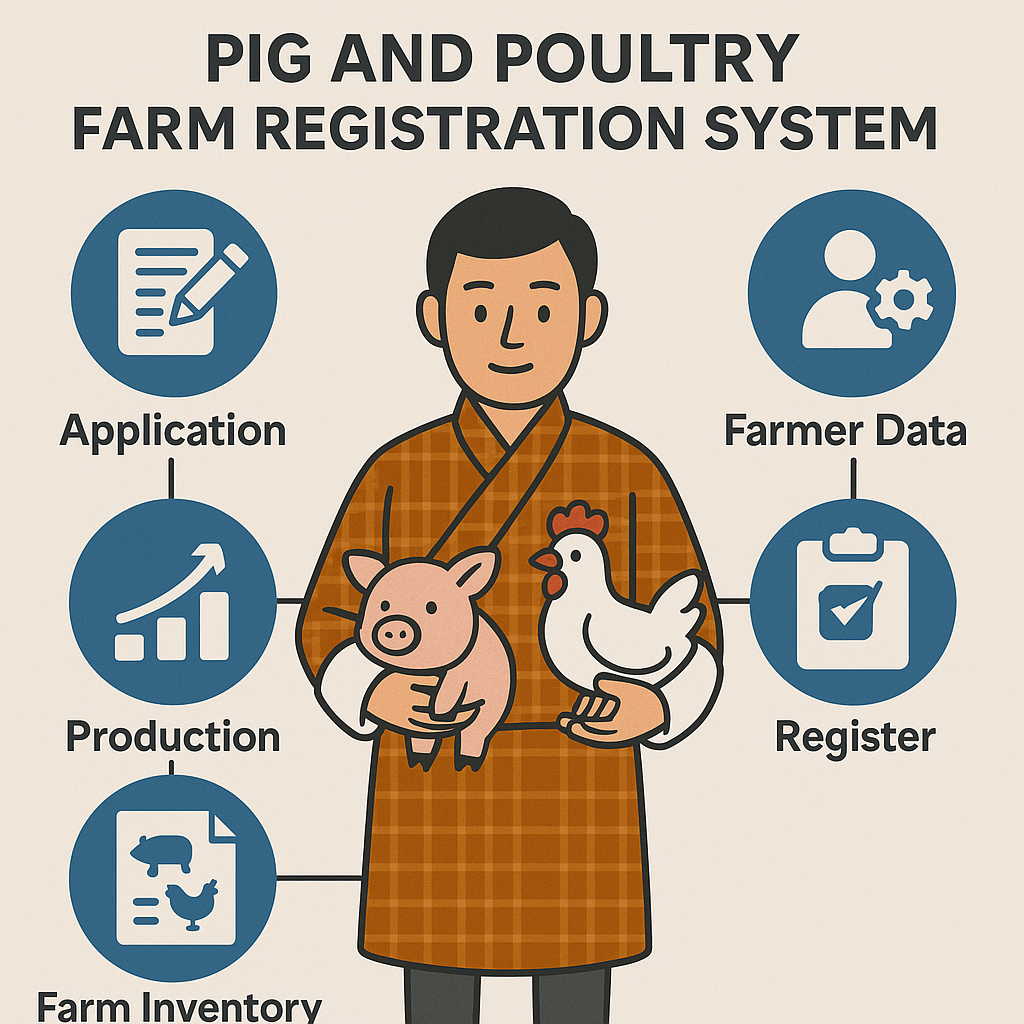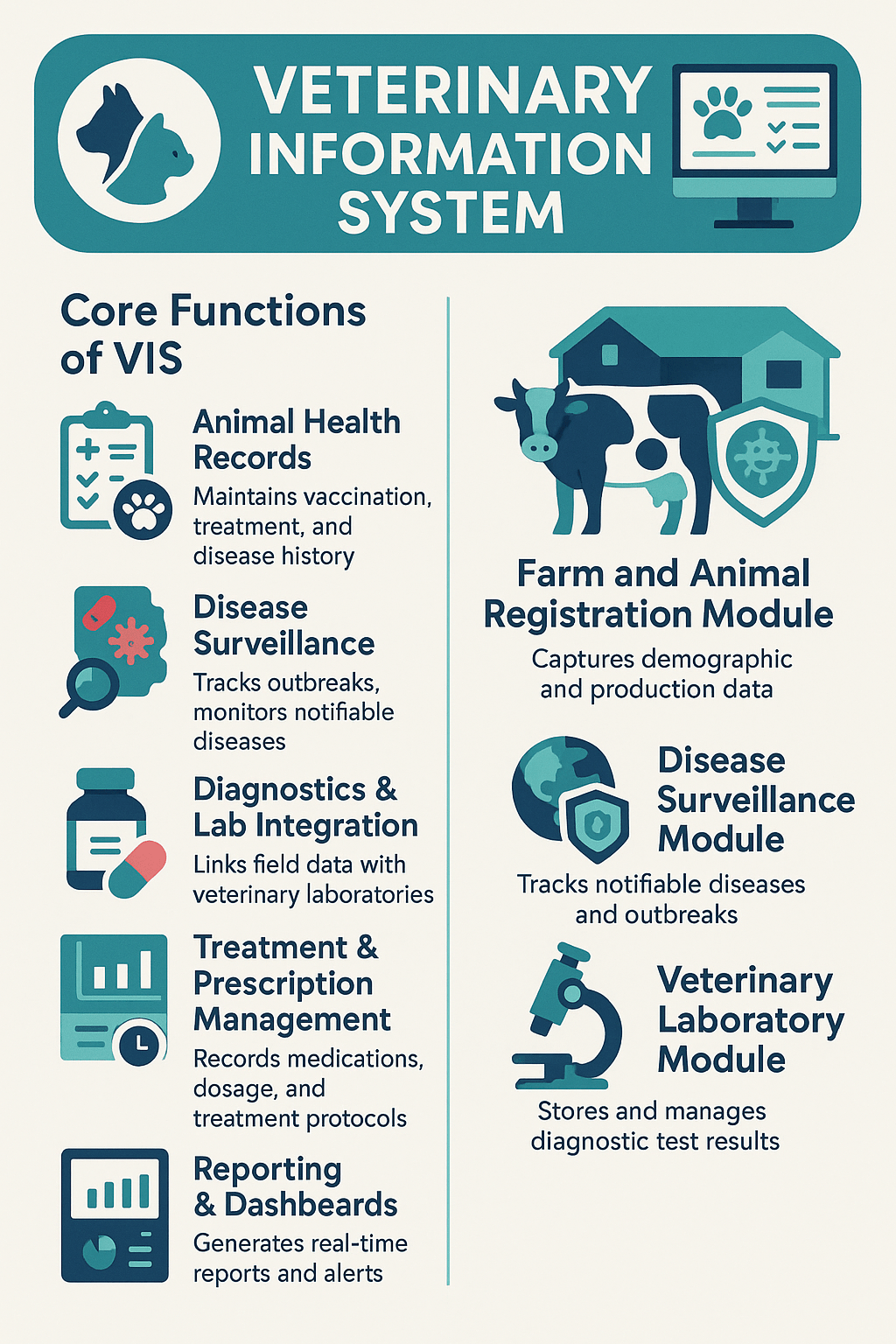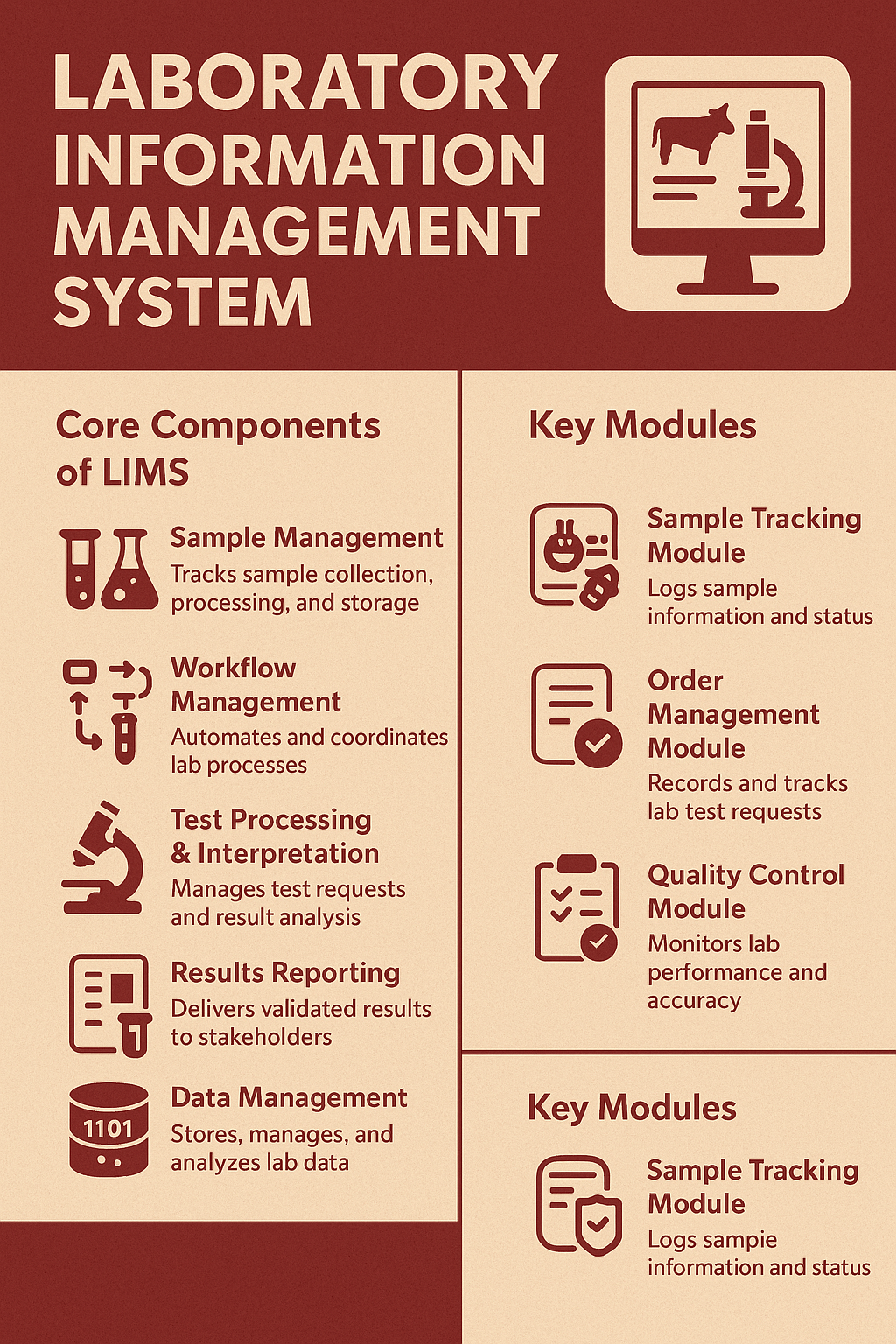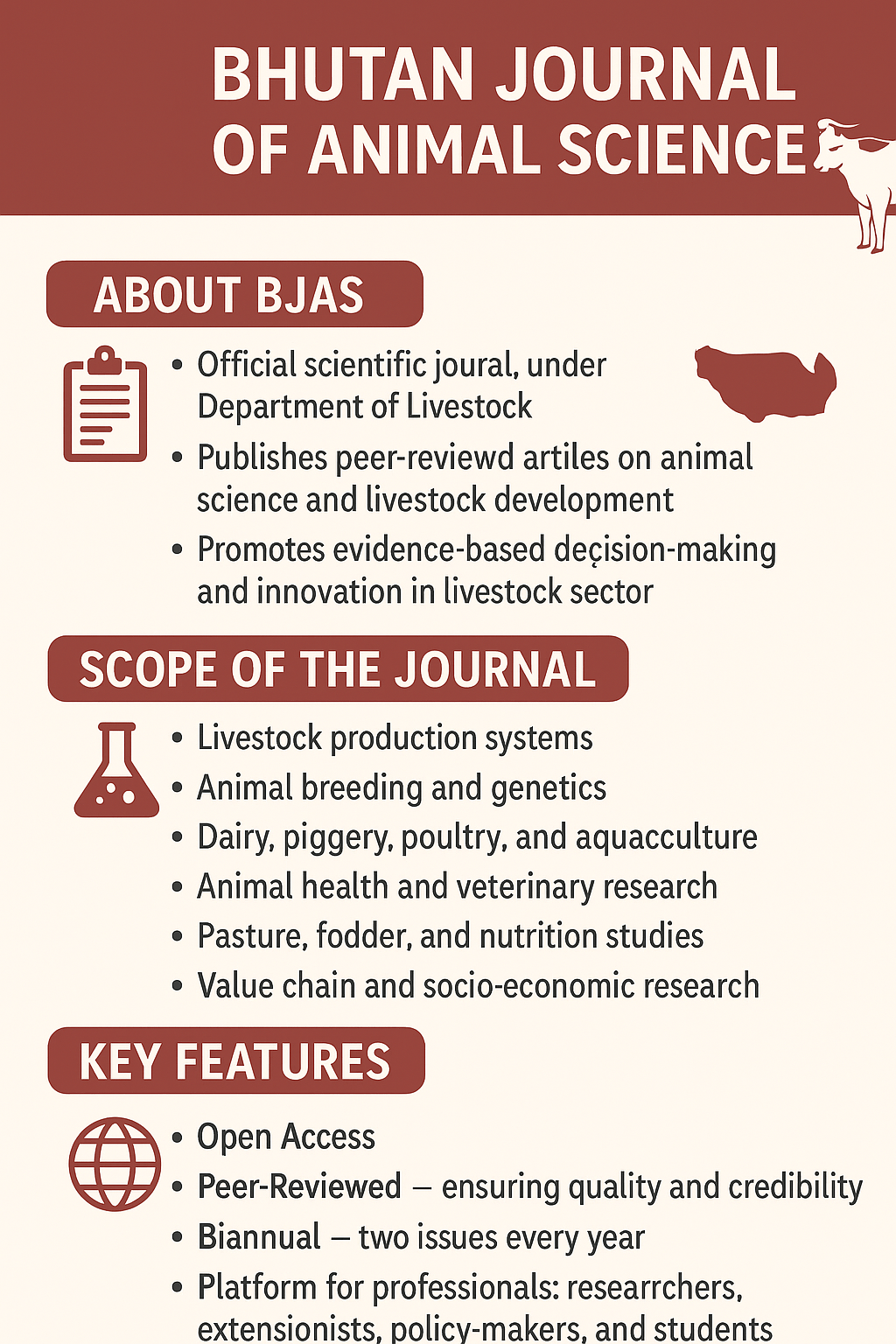The training of Gewog Livestock Supervisors (GLS) on the Pig and Poultry Farm Registration System 𝗵𝗮𝘀 𝗼𝗳𝗳𝗶𝗰𝗶𝗮𝗹𝗹𝘆 𝗰𝗼𝗺𝗺𝗲𝗻𝗰𝗲𝗱 𝗶𝗻 𝗦𝗮𝗺𝗱𝗿𝘂𝗽𝗷𝗼𝗻𝗴𝗸𝗵𝗮𝗿 𝗗𝘇𝗼𝗻𝗴𝗸𝗵𝗮𝗴, marking a significant milestone for the livestock sector. This initiative, launched by the Department of Livestock at the beginning of the 2025–2026 financial year, represents an important step toward strengthening livestock data management and digitization.
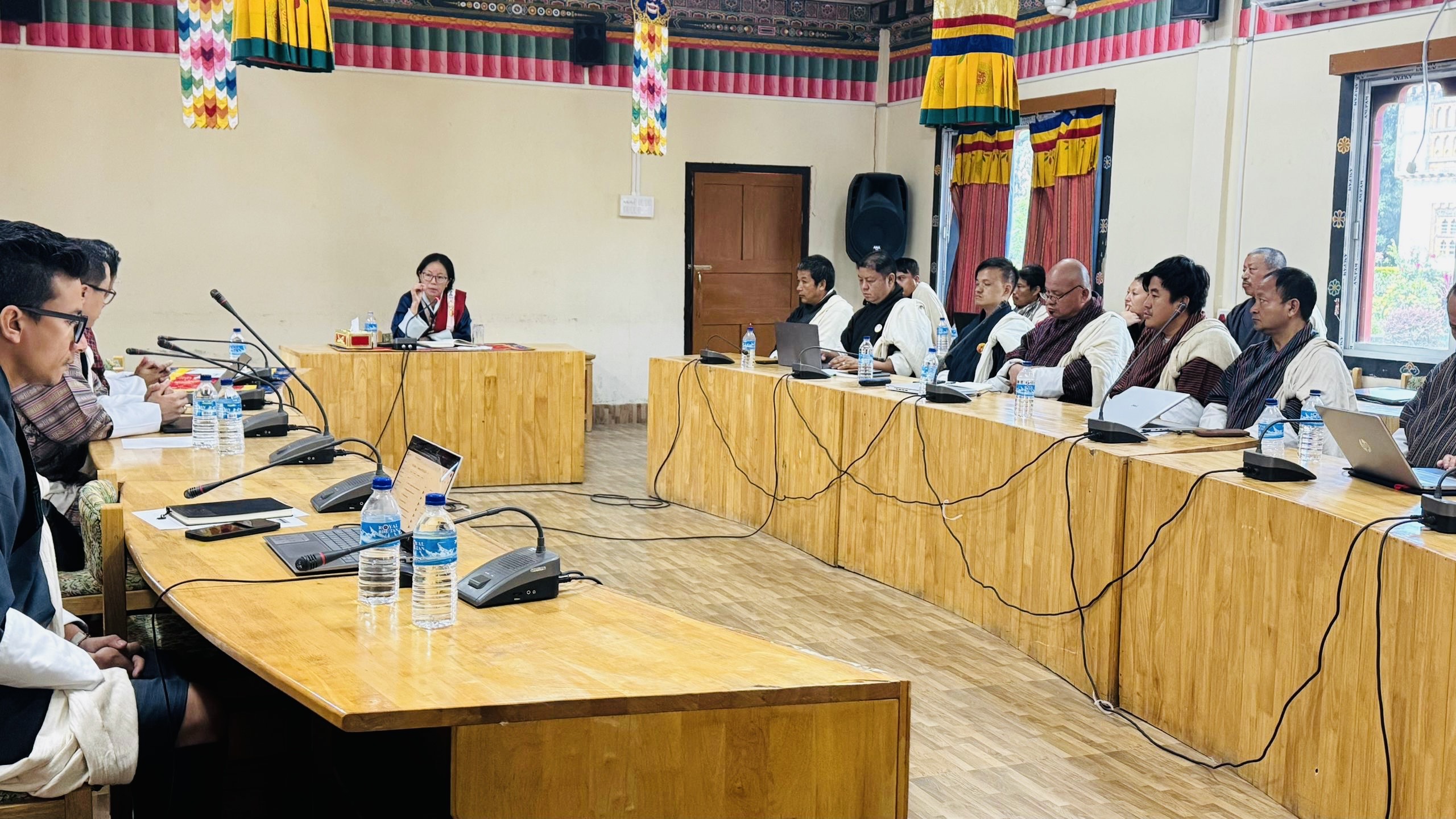 The three-day training program, conducted from 18 to 20 August 2025 under the leadership of the Dzongkhag Livestock Officer and the Dzongkhag Livestock Production Officer, with technical support from the Department, is designed to equip GLS with the knowledge and skills necessary to operate the system effectively. As the first point of contact in the field, GLS play a crucial role in working directly with farmers, guiding them through the registration process, and ensuring that farms are systematically registered in the system.
The three-day training program, conducted from 18 to 20 August 2025 under the leadership of the Dzongkhag Livestock Officer and the Dzongkhag Livestock Production Officer, with technical support from the Department, is designed to equip GLS with the knowledge and skills necessary to operate the system effectively. As the first point of contact in the field, GLS play a crucial role in working directly with farmers, guiding them through the registration process, and ensuring that farms are systematically registered in the system.
Dasho Dzongdag of Samdrupjongkhar graced the opening and emphasized that the system will ease the work of GLS, improve efficiency, and ensure uniformity in livestock data management. She highlighted the importance of reliable data, farmer sensitization, and the consistent effort of system users to ensure its success. She further noted that the system will serve as a monitoring tool, promote standardized livestock practices, and advance the national goal of digitization.
𝗙𝗼𝗹𝗹𝗼𝘄𝗶𝗻𝗴 𝘁𝗵𝗲 𝘁𝗿𝗮𝗶𝗻𝗶𝗻𝗴, 𝗚𝗟𝗦 𝗳𝗿𝗼𝗺 𝘁𝗵𝗲 𝗲𝗹𝗲𝘃𝗲𝗻 𝗚𝗲𝘄𝗼𝗴𝘀 𝗼𝗳 𝗦𝗮𝗺𝗱𝗿𝘂𝗽𝗷𝗼𝗻𝗴𝗸𝗵𝗮𝗿 𝘄𝗶𝗹𝗹 𝗯𝗲 𝗱𝗲𝗽𝗹𝗼𝘆𝗲𝗱 𝘁𝗼 𝗿𝗲𝗴𝗶𝘀𝘁𝗲𝗿 𝗳𝗮𝗿𝗺𝘀. 𝗔𝘁 𝗽𝗿𝗲𝘀𝗲𝗻𝘁, 𝘁𝗵𝗲 𝗗𝘇𝗼𝗻𝗴𝗸𝗵𝗮𝗴 𝗵𝗮𝘀 𝘀𝗹𝗶𝗴𝗵𝘁𝗹𝘆 𝗼𝘃𝗲𝗿 𝟭𝟬𝟲 𝗽𝗶𝗴 𝗮𝗻𝗱 𝗽𝗼𝘂𝗹𝘁𝗿𝘆 𝗳𝗮𝗿𝗺𝘀.
In the months ahead, the Department will roll out similar training programs in phases, beginning with six major Dzongkhags: Samdrupjongkhar, Dagana, Tsirang, Sarpang, Samtse, and Chhukha, which together account for the largest concentration of farms. The remaining Dzongkhags will follow. 𝗕𝘆 𝗗𝗲𝗰𝗲𝗺𝗯𝗲𝗿 𝟮𝟬𝟮𝟱, 𝗶𝘁 𝗶𝘀 𝗮𝗻𝘁𝗶𝗰𝗶𝗽𝗮𝘁𝗲𝗱 𝘁𝗵𝗮𝘁 𝗺𝗼𝗿𝗲 𝘁𝗵𝗮𝗻 𝟴𝟱 𝗽𝗲𝗿𝗰𝗲𝗻𝘁 𝗼𝗳 𝗽𝗶𝗴 𝗮𝗻𝗱 𝗽𝗼𝘂𝗹𝘁𝗿𝘆 𝗳𝗮𝗿𝗺𝘀 𝗮𝗰𝗿𝗼𝘀𝘀 𝘁𝗵𝗲 𝗰𝗼𝘂𝗻𝘁𝗿𝘆 𝘄𝗶𝗹𝗹 𝗯𝗲 𝗿𝗲𝗴𝗶𝘀𝘁𝗲𝗿𝗲𝗱, 𝗿𝗲𝗮𝗰𝗵𝗶𝗻𝗴 𝗼𝘃𝗲𝗿 𝟵𝟱 𝗽𝗲𝗿𝗰𝗲𝗻𝘁 𝗯𝘆 𝘁𝗵𝗲 𝗲𝗻𝗱 𝗼𝗳 𝘁𝗵𝗲 𝗳𝗶𝗻𝗮𝗻𝗰𝗶𝗮𝗹 𝘆𝗲𝗮𝗿.
This initiative represents a significant step toward digitizing livestock services, strengthening farm monitoring, and developing a reliable database that will serve as the backbone for future livestock development.
![]()

